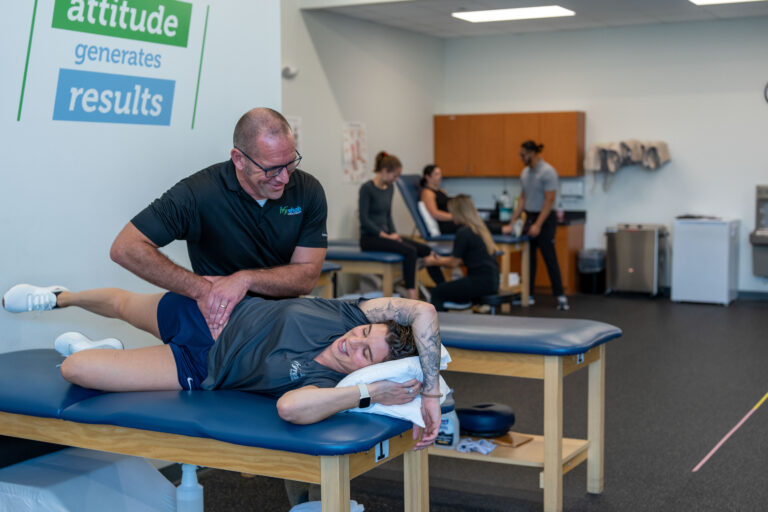Healing Together
페이지 정보

본문
Creating a daily routine provides structure, making it easier to manage the chaos that often accompanies adjustment disorder. A consistent schedule helps individuals regain a sense of control over their lives, reducing feelings of overwhelm. Incorporating regular activities into the day, such as work, self-care, and social interactions, can promote stability and balance. By establishing a routine, individuals can create a supportive environment conducive to healing and growth.
Engaging in physical activity is not only beneficial for physical health but also for emotional well-being. Exercise releases endorphins, which boost mood and reduce feelings of anxiety and depression. Activities like walking, jogging, or yoga can serve as powerful outlets for stress, encouraging individuals to focus on their bodies and breath. The sense of accomplishment from regular exercise also fosters resilience, motivating individuals to continue their journey toward healing.
Adjustment disorder is a response to a significant life change that disrupts your emotional well-being. It can arise from various stressors, such as the end of a relationship, job loss, or moving to a new environment. Symptoms often include sadness, anxiety, and difficulty concentrating, making it hard to cope with everyday tasks. Recognizing these feelings is the first step toward healing. By understanding that these reactions are common and valid, individuals can seek appropriate support and start their journey toward regaining emotional stability and resilience.
 Coping Strategies for Healing
Coping Strategies for HealingFinding effective coping strategies can empower those dealing with adjustment disorder. Simple practices like journaling can help articulate thoughts and emotions, while mindfulness techniques, such as meditation or deep breathing exercises, promote relaxation and emotional awareness. Establishing a routine provides structure during chaotic times, making daily challenges more manageable. Engaging in physical activity not only boosts mood but also encourages a sense of accomplishment. By experimenting with various strategies, individuals can discover what works best for them, Pyschotherapy fostering resilience and paving the way for healing.
The Power of Journaling
Journaling serves as a powerful tool for those facing adjustment disorder. It allows individuals to express their thoughts and emotions freely, helping to clarify feelings and track their emotional journey. Writing can also provide insights into patterns of thought and behavior, facilitating self-reflection. By putting pen to paper, individuals can release pent-up emotions, making it easier to cope with daily stressors and navigate their healing process.
While adjustment disorder can feel consuming, it’s important to remember that it often serves as a catalyst for personal growth. With time and effort, individuals can emerge stronger and more resilient than before. As you navigate this journey, focus on the lessons learned from your experiences and the newfound strengths that have developed along the way. Set small, achievable goals to inspire motivation and a sense of accomplishment. Embrace the belief that brighter days are ahead, and trust in your ability to heal and thrive.
 Adjustment disorder can feel overwhelming, but it’s important to remember that you’re not alone in this journey. Many face the challenges of adapting to life changes, whether it’s moving to a new city, losing a job, or experiencing a significant loss. Together, we can find hope and healing through open conversations and supportive connections. Seeking help from friends, family, or professionals can provide the guidance needed to navigate these tough times. Remember, it’s okay to feel what you’re feeling; healing is possible, and brighter days are ahead.
Adjustment disorder can feel overwhelming, but it’s important to remember that you’re not alone in this journey. Many face the challenges of adapting to life changes, whether it’s moving to a new city, losing a job, or experiencing a significant loss. Together, we can find hope and healing through open conversations and supportive connections. Seeking help from friends, family, or professionals can provide the guidance needed to navigate these tough times. Remember, it’s okay to feel what you’re feeling; healing is possible, and brighter days are ahead.Mindfulness and Meditation
Mindfulness and meditation are effective practices for promoting relaxation and emotional awareness. Engaging in mindfulness helps individuals stay grounded in the present moment, reducing anxiety and stress. Techniques such as deep breathing exercises can calm the mind and body, enhancing overall well-being. Regular practice encourages a deeper connection with oneself, fostering a sense of peace and acceptance that can be incredibly beneficial during challenging times.

- 이전글The Most Pervasive Issues In Pragmatic Free Slots 24.12.24
- 다음글This Article Will Make Your Bitcoin Amazing: Read Or Miss Out 24.12.24
댓글목록
등록된 댓글이 없습니다.
